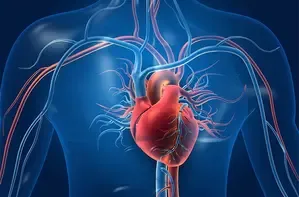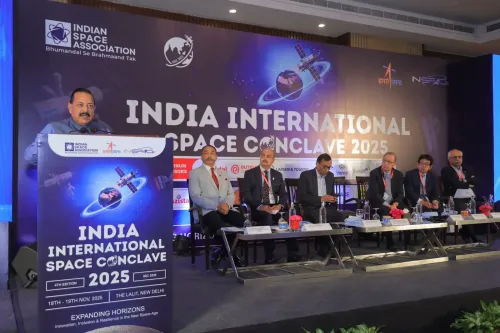Revolutionary Study Brings New Hope for Ischemic Heart Failure Treatment

Synopsis
Key Takeaways
- Discovery of new methods to enhance cardiomyocyte proliferation.
- Inhibition of calcium influx can induce heart cell replication.
- Potential therapeutic targets identified for ischemic heart failure.
- Research conducted by international team, enhancing collaboration.
- Significance of calcium signaling in cardiac regeneration highlighted.
New York, March 9 (NationPress) An international team of scientists has unveiled a transformative discovery in the field of cardiac regeneration that brings fresh optimism for the management of ischemic heart failure.
Published in the journal npj Regenerative Medicine, this research conducted by the Baylor College of Medicine in the US, the QIMR Berghofer Medical Research Institute in Brisbane, Australia, along with other partnering institutions, proposes a new strategy for enhancing cardiomyocyte proliferation.
“When the heart fails to replace damaged cardiomyocytes with healthy ones, it gradually loses strength, leading to heart failure. In this research, we examined a novel method to stimulate cardiomyocyte proliferation to aid heart recovery,” explained Dr. Riham Abouleisa, an assistant professor within the Division of Cardiothoracic Surgery at Baylor.
Previous investigations highlighted the critical role that calcium plays in cardiomyocyte proliferation.
In the current research, the team delved into how altering calcium influx in cardiomyocytes influenced their proliferation.
“Our findings indicate that blocking calcium influx in cardiomyocytes boosts the expression of genes related to cell proliferation,” Abouleisa noted.
“We achieved this by inhibiting the L-Type Calcium Channel (LTCC), a protein that manages calcium levels within these cells. Our results suggest that LTCC could serve as a target for creating new therapies aimed at promoting cardiomyocyte proliferation and regeneration,” she shared.
The research illustrates that both pharmacological and genetic suppression of LTCC can stimulate cardiomyocyte replication, a process mediated by the modulation of calcineurin, a recognized regulator of cardiomyocyte proliferation.
This pioneering approach yielded encouraging outcomes in both human cardiac slices cultured in laboratories and in live animal models.
The collaboration across continents led to a discovery that could transform the application of existing medications that manage calcium entry into cells, such as Nifedipine, for patients with heart failure, stated Dr. Tamer Mohamed, co-author and director of the Laboratory for Cardiac Regeneration at Baylor College of Medicine.
This research underscores the significance of targeting calcium signaling pathways to unleash the heart's regenerative capabilities and paves the way for the development of cardiac regenerative therapies, potentially revolutionizing treatment options for individuals suffering from heart failure.









